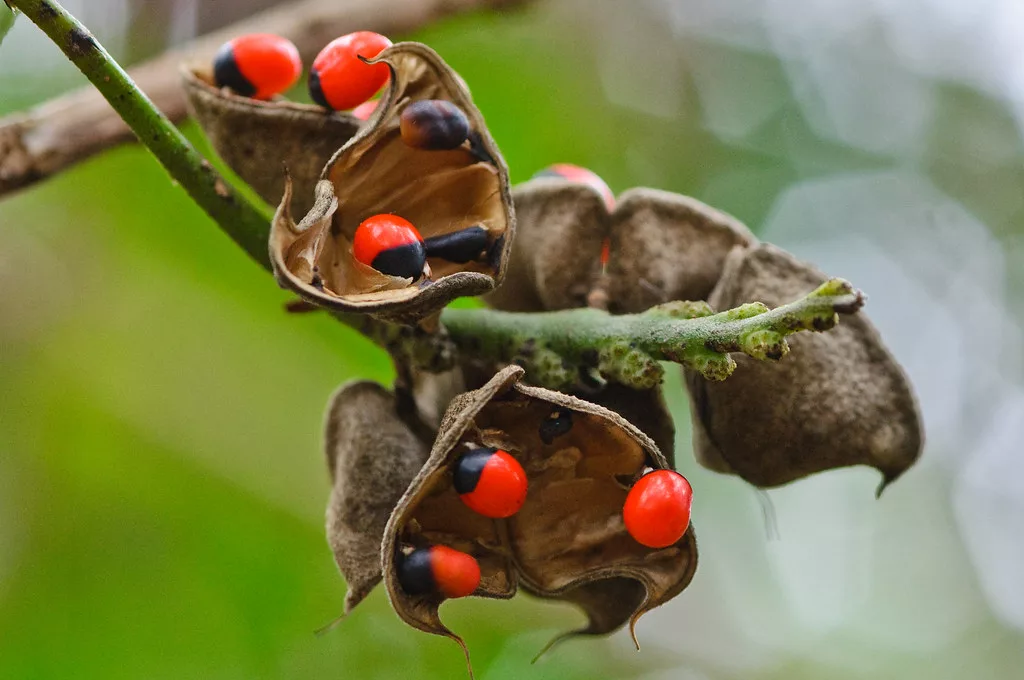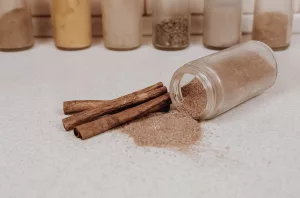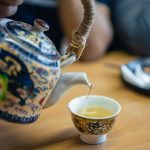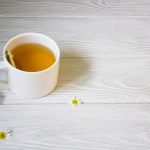Ever heard of rosary pea? In this article, we are going to discuss rosary pea’s medicinal uses and how they will help with hair growth.
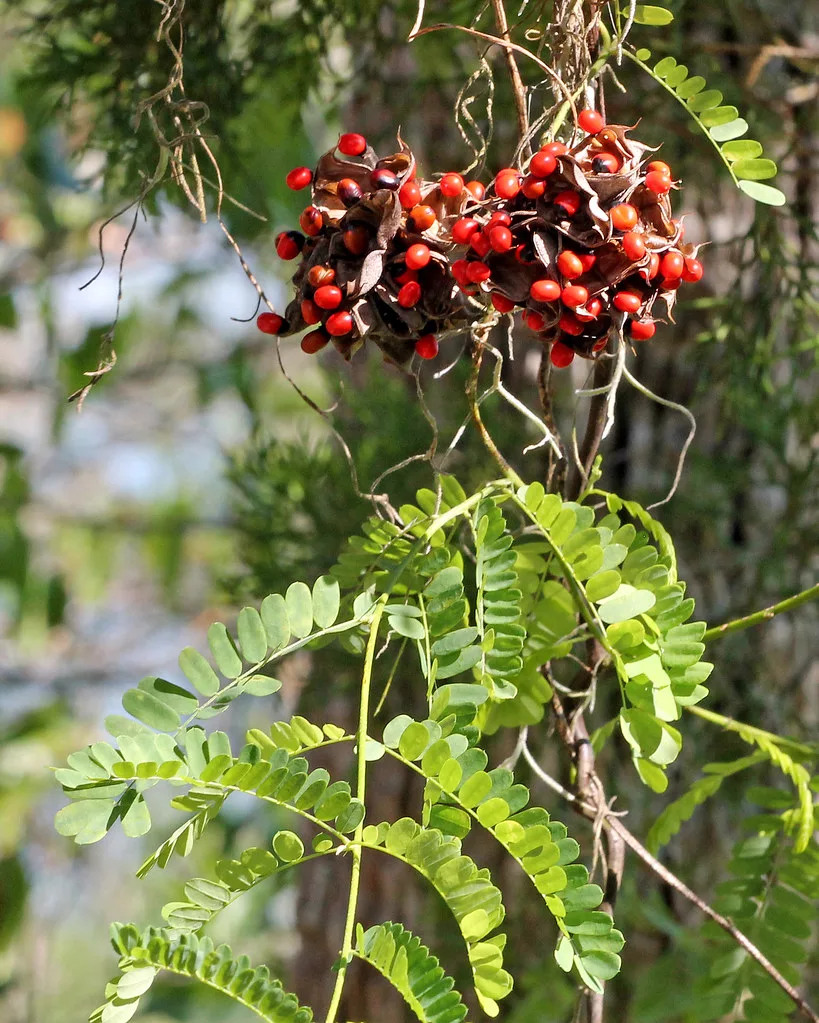
The Rosary Pea is a knotted herb that has long, feathery leaves that are pinnately-lobed and arranged in whorls. The flowers, which can range in color from pink to deep purple, appear at the very tip of the plant’s stalk.
On the other side, fruits are small pods filled with brittle, glossy, red, and black seeds. In Sanskrit and a few other Indian languages, the name for the plant is Gunja.
Although it originated in Indonesia, the plant can be found all over the world, particularly in tropical and subtropical regions. Growing it improperly could lead to the plant becoming invasive and a weed in the regions where it has been introduced.
Rosary Pea Medicinal Uses:
- Used for the treatment of gonorrhea, jaundice, and bile hemoglobinuria.
- Relieves pain from snake and scorpion bites.
- To stimulate hair growth in humans.
- Effective in alleviating the symptoms of nervous system disorders such sciatica, shoulder joint stiffness, paralysis, and more.
- Aid with temperature regulation, coughing, and cold symptoms.
- It’s utilized for treating paralysis, erectile dysfunction, and impotence.
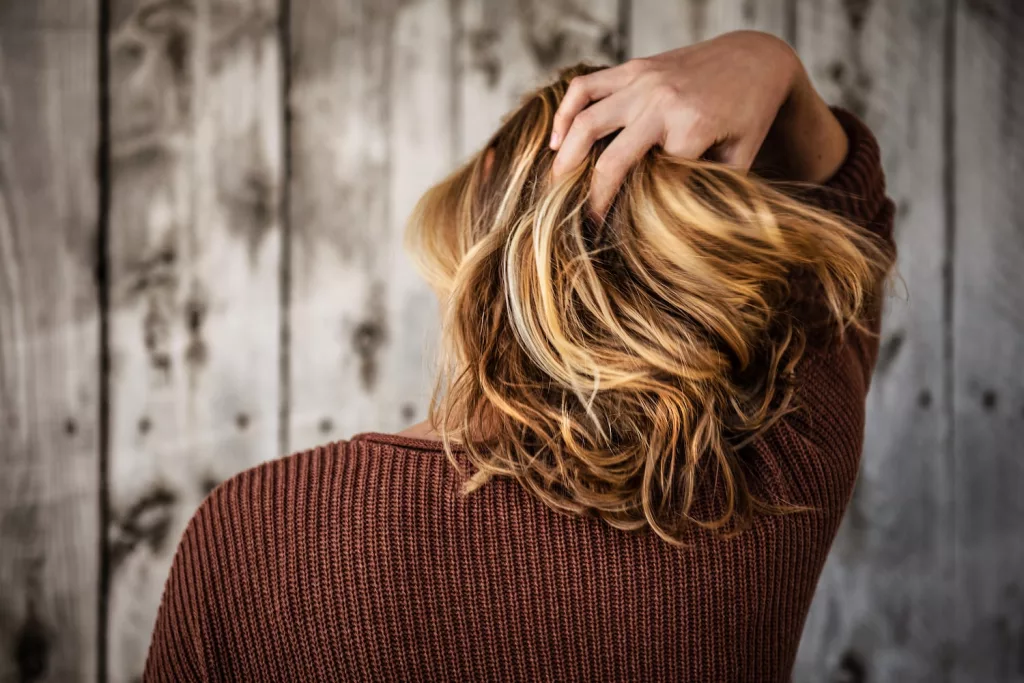
Instructions for Using Rosary Pea:
- The roots of the rosary pea are used to cure gonorrhea, jaundice, and bilirubinuria.
- In order to alleviate the pain caused by a scorpion sting or snakebite, the powdered root of the rosary pea plant should be mixed with cow’s milk.
- Oil extracted from the seeds of the herb has been said to promote hair growth.
- After being ground into a vermifuge paste, the seeds can be applied topically to treat conditions like sciatica, shoulder joint pain, and paralysis.
- The Rosary pea plant’s leaves can be brewed into a tea that is said to alleviate symptoms of a fever, cough, or cold.
- The white seeds of the plant are used to produce an oil that is considered the modern equivalent of Viagra.
Use Rosary Pea With Extreme Caution
Dangerous toxins can be found in rosary pea seeds. When consumed in powdered form, they can interfere with the functions of the uterus and make it more difficult for women to conceive.
The Dangers of Eating Raw Rosary Seeds
Using seeds that haven’t been cleaned of toxins can have very bad effects.
- Nausea
- Vomiting
- Inability to urinate (anuria)
- Cardiac Event
- Shock
- Difficult to breath
- Can be lethal in 36-72 hours
Rosary Pea Detoxification
For the reasons stated above, raw seeds should not be used for medical purposes. In order to prepare Rosary Peas, the seeds are ground into a coarse powder, placed in a cotton pouch, and boiled in the cow’s milk for three to six hours.
Another option is to boil them for 3 to 6 hours in water made from cooked brown rice. Throw away any milk or water from brown rice that was utilized in the detoxification process.
Cooking rosary peas in cow’s milk or brown rice water decrease their toxicity and makes them usable for medicine. When the rosary peas are subjected to heat, the toxalbumins that are found in the peas break down and dissolve into the milk or brown rice water. Because of this, the amount of potentially harmful chemicals found in rosary pea is significantly reduced.
Detoxified Rosary Pea Side Effects
When consumed in quantities of less than 250 mg per day as well as combined it with milk, the purified rosary pea does not exert the same harmful effects as those described before. Despite this, the high dosage still has the potential to induce the following adverse effects:
- Vertigo
- Restlessness
- Diarrhea
- Vomiting
Disclaimer: This is for informational purposes only
Did you find this helpful? Let us know in the comments.
You can also visit our Facebook and YouTube pages to learn about plants and their health benefits.
You might also like:
- 6 Remarkable Medicinal Benefits Of The Lantana Plant
- The Remarkable Use And Medicinal Benefit Of Jasmin For Nursing Mothers
- The Best Treatment For Scabies And Medicinal Uses Of Leucas
- 6 Remarkable Medicinal Benefits Of Turmeric And How To Treat Urinary Illness With This
- Learn 5 Best Medicinal Uses Of Cotton And How To Cure Urinary Problems

